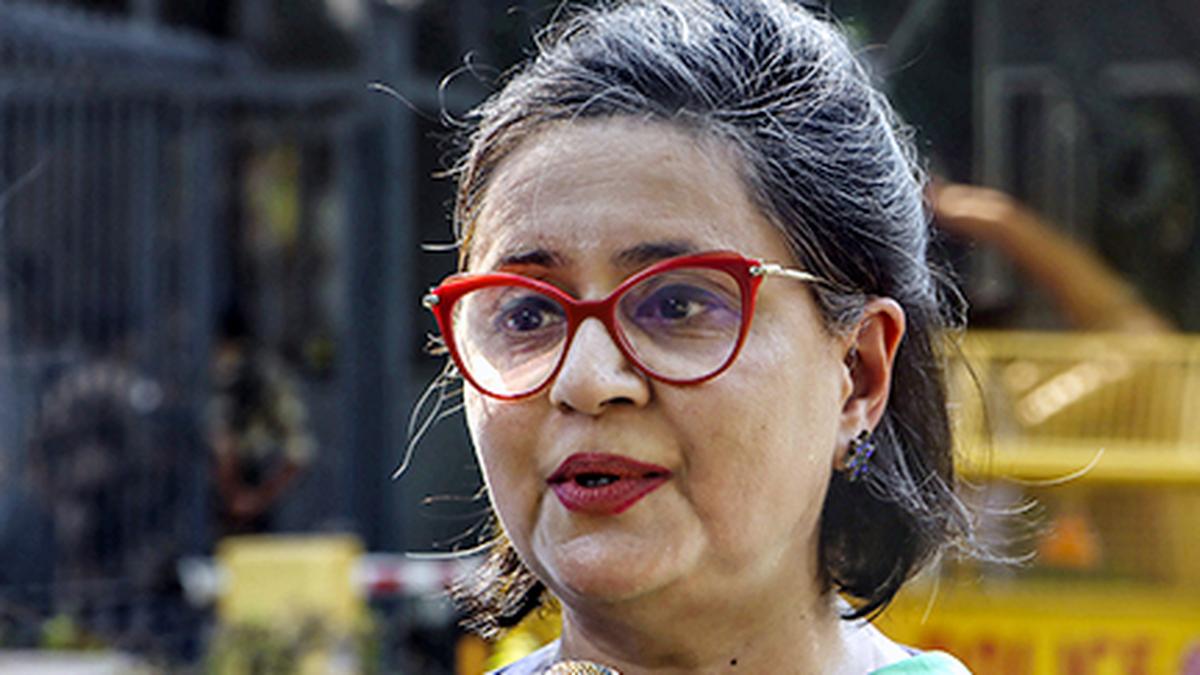When a visually impaired government employee requests screen-reading software (to speak out the content in a mechanical voice) to do their job, does it fall under the ambit of a necessary provision or an “undue burden”?
The answer seems straightforward, yet across India’s employment sector, such reasonable accommodations remain what the Supreme Court’s 2024 Handbook Concerning Persons with Disabilities (PwDs) identifies as one of the biggest challenges to realising disability rights. “They are often seen as a “nice to have” by businesses and public sector institutions rather than a “must-have”,” it reads.
In Focus Podcast | Are persons with disabilities in India compensated well?
The Department of Empowerment of Persons with Disabilities (DEPwD), in its recent circular dated September 22, 2025, directed government departments to provide high-quality assistive devices to employees with disabilities. It said this was necessary to address “concerns over bias,” with some departments hesitating to assign significant responsibilities to PwDs due to perceived productivity limitations.
This isn’t a new direction. A similar circular was issued in February 2024. According to S. Govindaraj, Commissioner in the Office of Chief Commissioner for Persons with Disabilities (CCPD), New Delhi, both circulars reiterate provisions in line with the “principle of reasonable accommodation” in the Rights of Persons with Disabilities Act, 2016. It must be noted that the same Act mandates a 4% job reservation for PwDs in both government and private establishments.However, the repeated need for such directives points to a long-standing gap between policy and practice.

What are reasonable accommodations, as per law?
Under Section 2(y) of the RPwD Act, 2016, a reasonable accommodation means “any necessary and appropriate modification and/or adjustment” that enables persons with disabilities to enjoy their rights equally with others, without imposing a “disproportionate or undue burden”.
The provision clarifies that it isn’t about special treatment, but about accommodating needs that arise from infrastructure gaps in workplaces that aren’t built to be inclusive, said Arman Ali, Executive Director of National Centre for Promotion of Employment for Disabled People (NCPEDP). He called it a “game changer” for disability rights, captured appropriately in the latest government circular.
“Reasonable accommodation, as a principle, embodies ‘substantive equality’, ensuring PwDs don’t have to conform to existing norms at the cost of their contributions,” Pradeep Raj, a Delhi-based disability rights activist and para-athlete, said as per the accepted interpretation from the SC’s Handbook.
What are considered accommodation(s), when reasonable?
The scope is broad and individualised, as per the RPwD, Act. It includes providing accessible workspaces, flexible working hours, assistive technologies, modified job duties, and/or specialised training to accommodate needs.
“The distinction between what qualifies as general accessibility and reasonable accommodation matters,” Mr. Ali said. For a visually impaired student, providing entrance exam papers in accessible formats is accessibility, a baseline measure. But offering the paper specifically in Braille when requested becomes a reasonable accommodation, responding to an individual need where general measures fall short.
The Supreme Court’s Handbook substantiates that the goal behind such additional support is not to grant PwDs an untoward advantage but to level the playing field.
The costs when implementation gaps arise
Further, the September circular provides clarity on the budget allocation. Departments can approve devices up to ₹10 lakh every three years with secretary-level approval, with DEPwD involvement only for higher amounts or urgent replacements. These must be high-quality, need-based provisions which are determined via case-by-case assessments rather than one-size-fits-all solutions.
Commissioner Govindaraj said there are hold ups in execution of requests even after due diligence and approvals are provided, however, necessary job modifications are done in such periods to make best use of the resources and the workforce.
While this is considered a step forward, it highlights an underlying social lens problem. The circular notes “concerns over bias” with departments hesitating to assign significant responsibilities to PwDs due to perceived productivity limitations. The ableist language, Chennai-based social rights activist Deepak Nathan said, exposes how departments still view accommodations through a cost-burden lens rather than aligning needs with capability and contribution.
“Employees who already face procedural hurdles and the emotional cost of constantly justifying their needs also end up bearing the brunt when there is a lack of attitudinal adjustments which cost nothing financially,” Mr. Raj explained.
Lapses in judgment: Reasonable accommodation vs undue burden
The Supreme Court in Vikash Kumar v. Union Public Service Commission & Others (2021) clarified that complications from accommodations are inevitable. Only “disproportionate or undue burden” justifies denial, while additional effort or complexity cannot be excused.
In reference to the United Nations Convention on the Rights of Persons with Disabilities (UNCRPD), the test of undue burden should be done considering a broad set of factors such as “financial costs, resources available, the size of the accommodating party, the effect of the modification, third-party benefits, negative impacts on other persons and reasonable health and safety requirements”.
“Yet this is still far from the culture in workplaces, especially in the public sector where they can be brushed off as optional. Liaison officers lack proper training on assistive devices and reasonable accommodation protocols,” Mr. Nathan said. This could be better managed with clear departmental Standard Operating Procedures (SOPs) and mandatory sensitisation programmes in place. “While there are penalties of up to ₹1 lakh, more stringent and actionable enforcement mechanisms for non-compliance are also needed,” he added..
The policy intent is strong and the principle legally established. The harder work lies in implementation through simplified processes and accountability mechanisms to enable the “nice to haves” to be the fundamental rights they are meant to be.

 2 days ago
6
2 days ago
6









 English (US) ·
English (US) ·